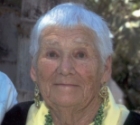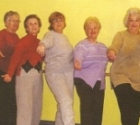
http://www.flickr.com/photos/aah-yeah/2932251212/sizes/z/in/photolist-
The Hebrew word “refuah” means healing, and the Jerusalem Refuah Institute teaches the art of healing with Love, Torah and Science. Prof. Joshua Ritchie, a pediatrician and Dean of the Institute, explains that the Torah teaches that all healing begins with the soul. As one of the central mitzvot is to “Love your neighbor as yourself,” one of the highest forms of loving-kindness is helping someone to heal. At a recent “Torah Psychology and Medicine International Conference” held at the Begin Center in Jerusalem, the focus was on the synergy of Torah, Positive Psychology and Mind-Body Medicine.
Positive Psychology teaches how to achieve excellence and happiness through harnessing character strengths and virtues such as optimism, gratitude, kindness and spirituality. Prof. Tal Ben-Shahar, who addressed the conference, has become one of the gurus in this field. Ben-Shahar, now based at the Herzliya Interdisciplinary Center, previously lectured at Harvard University where his weekly classes drew a record 1,400 students. When you think that a recent national American survey of students discovered that 94% reported feeling overwhelmed with all that they had to do, and 45% admitted to being so depressed that they couldn’t function properly, it is not surprising that lectures on how to be happy are so attractive.
Ben-Shahar claims that there are two kinds of humans who never experience painful emotions like rage or jealousy: psychopaths and people who are dead. “Grant yourself the permission to be human” is one of his tenets - accept that constant joy is not going to happen. And that’s fine. Being happy does not mean being delirious all day long. Being happy means being able to accept the whole gamut of emotions and knowing how to deal with them all.
Positive Psychology breaks down the pursuit of happiness into attainable elements: regular exercise, deep breathing, focusing on the positive are just a sampling. The Mind-Body Connection is paramount – research has proved that exercise releases endorphins into the body, similar to the effects of popping Prozak. Three sessions of moderate exercise a week can alleviate the need for medication, and get your body as well as your mind feeling a whole lot better. “Exercising is not like taking an anti-depressant,” explains Ben-Shahar, “but not exercising is like taking a depressant!”
Ben-Shahar has other tips for getting you through the day and getting a good night’s sleep as well. Try this for a kick-off: don’t race to beat a red traffic light. Instead, feel lucky when the light goes from green to amber just as you approach; stop your car calmly and breathe as deeply as you can. Breathe in, and out, and in, and out... you will be safer, less stressed and happier too.
When you go to bed, take a minute to write down five things that made you feel grateful that day: your wife/husband, your kids, a delicious piece of chocolate cake you ate after lunch. This is called “focusing on the positive” in the jargon of the profession; and it seems to work. Research proves that people who listed five things that made them angry during the day, or made them feel superior, or five incidents that hassled them, or simply happened, were less happy during the following day than those who jotted down what had made them feel good.
Stress, a modern day epidemic, is not a bad thing in and of itself. Stress can actually be beneficial, pushing us on to achieve and succeed. The key issue is how quickly we recover our equilibrium after stressful encounters or experiences. Too much of anything overloads the system - the best Mozart sonata played at full volume at the same time as your favorite Beatles song is blaring will only drive you crazy and give you no pleasure at all. Simplify! Do less, not more. Realize that time affluence is as important as material affluence. Ben-Shahar claims that once a person’s basic needs are met - food, a place to live, education - money and more money and even more cash in the bank does not make you happier. Time to enjoy the money you have is what makes a difference.
The Torah dovetails beautifully with this philosophy. Shabbat, the seventh day of the week, and a blessed day of rest, fits into the human body rhythm. According to Ben- Shahar a person can work hard for six days, and then physically and emotionally needs a day to recover. Praying with “kavanah,” (mindfulness) he maintains can reshape a person’s brain function, much the same as regular meditation does. Both praying and meditating properly can decrease anxiety, positively affect moods, activate the pre-frontal cortex of the brain and improve the immune response. Ben-Shahar claims that religious people, on the whole, are happier than those without spirituality in their lives; prayer brings on feelings of gratitude and religious rituals include family time and periods of recovery from stress.
Be that as it may, Prof. Ritchie identified a need in the ultra-Orthodox community for psychologists and counselors to help cope with the effects of stress, as well as dealing with other problems like abuse, unhappy marriages, and Cognitive Behavioral Disorders. The Refuah Institute which he initiated has trained over four hundred students (in English and Hebrew) in courses which include Marriage and Family Counseling, Neurolinguistic Programming and Life Coaching. The Institute is geared for religious students with study halls divided into sections for men and women.
According to Zivi Ritchie, Prof. J. Ritchie’s son and unofficial spokesman of the Institute, there are more differences between the Refuah Institute and other centers than merely the physical. “You will not find Freud taught at our institute, for example,” he explains. “Freud was perverted, and his theories don’t work.” Zivi maintains that the whole issue of sexuality is treated differently by secular psychologists and those trained in the Torah way. “If a gay person goes to a secular psychologist, that psychologist will help him to be comfortable in his sexual orientation and comfortable with being gay,” he explains. “But there is no acceptance for gays in the Torah. A psychologist trained in our way will help the gay person not to be gay anymore.”
Even happiness, it would seem, is a controversial subject in the Holy Land.
-1372412414.jpg) esra-befrienders
esra-befrienders Change of guards at Herzliya Golden Friendship Club
Change of guards at Herzliya Golden Friendship Club Who moved my stool?
Who moved my stool? Yad Sarah's new house in Raanana
Yad Sarah's new house in Raanana English speaking Feldenkreis
English speaking Feldenkreis Men don't Make Passes at Girls who Wear Glasses
Men don't Make Passes at Girls who Wear Glasses Pamela Peled
Pamela Peled